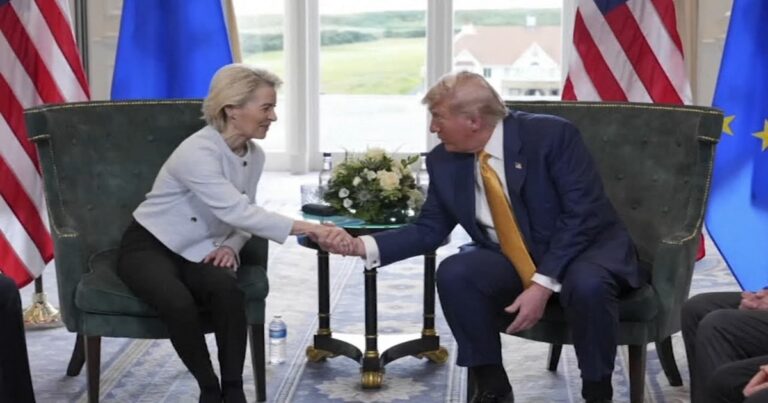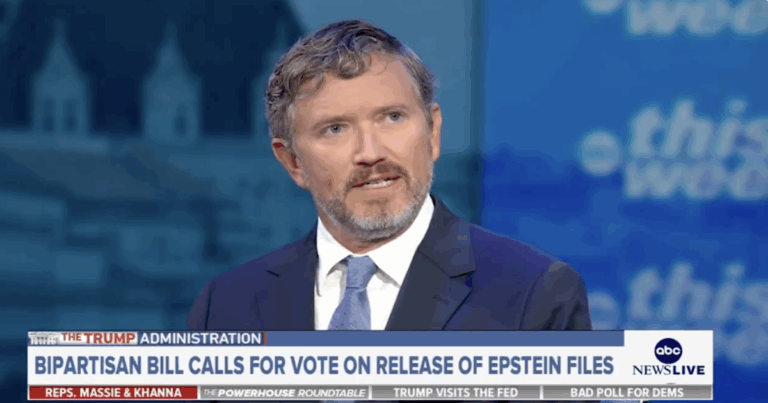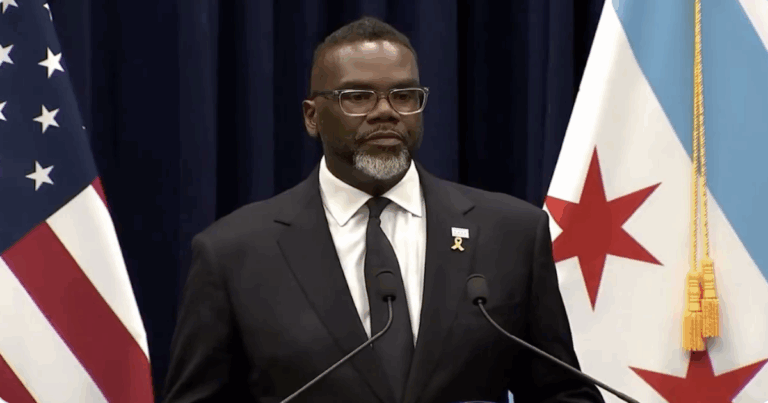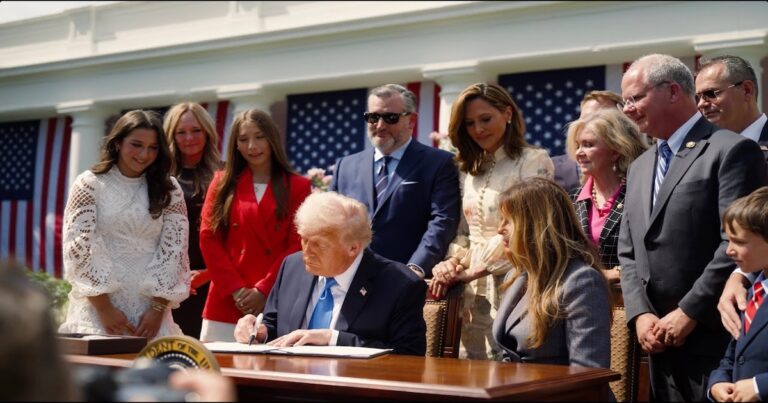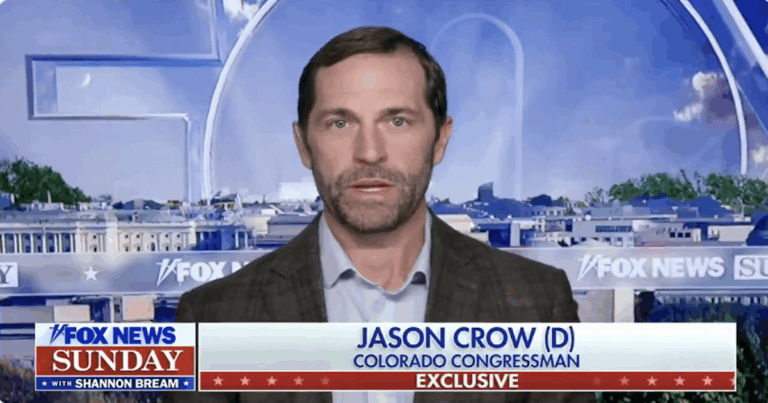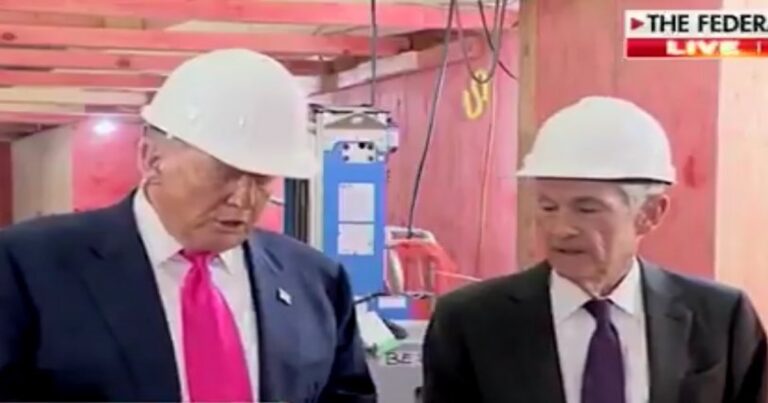Key Takeaways:
- Massive Energy & Investment Wins: The EU will purchase $750B in U.S. energy and invest $600B more into the American economy, fueling jobs and growth.
- Tariff Rebalance: European imports face a new 15% U.S. tariff, while U.S. goods enter the EU at a 0% rate—closing a decades-long trade gap.
- Military & Market Leverage: Europe committed to “hundreds of billions” in U.S. defense spending, proving Trump’s tough stance pays off at the negotiation table.
President Donald Trump just delivered a win for American workers and businesses, sealing a sweeping trade agreement with the European Union that rebalances a historically one-sided relationship. Announced Sunday from his Turnberry property in Scotland, the deal imposes a 15% baseline tariff on European imports — including autos — while keeping the existing 50% steel and aluminum duties intact. In return? The EU will buy $750 billion in American energy, zero its tariffs on U.S. goods, and invest another $600 billion directly into the U.S. economy.
Trump didn’t mince words: “We have the opening up of all of the European countries, which I think I could say were essentially closed… and now it’s open.”
That’s not all. The EU also agreed to a massive purchase of American military equipment — “hundreds of billions of dollars,” according to Trump — further cementing the U.S. as Europe’s defense backbone.
When asked what the U.S. gave up in exchange, European Commission President Ursula von der Leyen made it clear: the EU had the surplus, and it was time to level the playing field. “We hit exactly the point we wanted to find: rebalance, but enable trade on both sides,” she said.
Translation: Trump didn’t cave — Europe did.
For decades, EU countries milked the transatlantic trade imbalance. This deal puts America first without shutting down global commerce. It’s pro-trade, pro-growth, and unapologetically pro-American. Exactly how free-market leadership is supposed to look.

